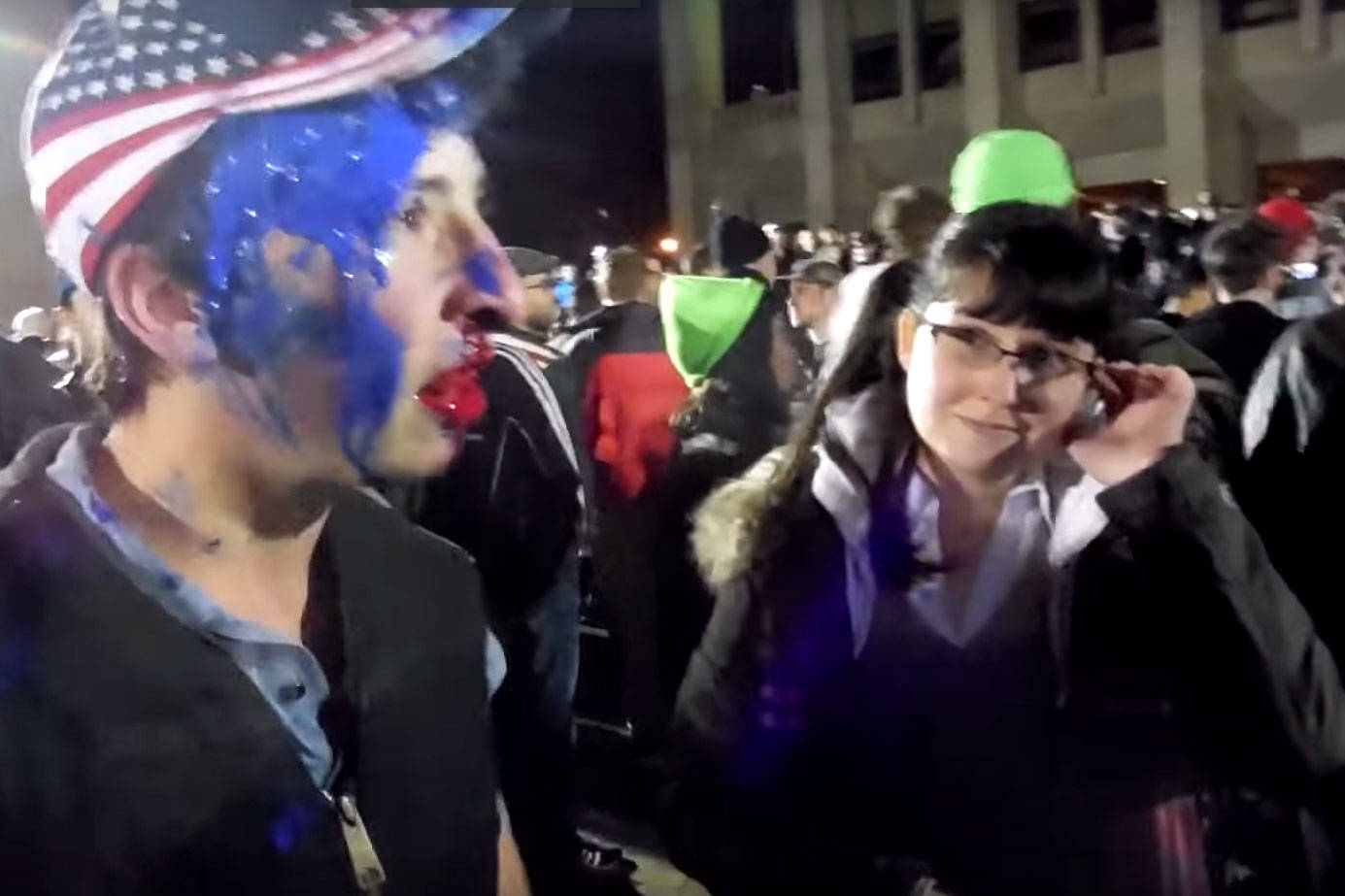The King County Prosecutors Office today charged Elizabeth Hokoana with first degree assault in connection with the January 20 shooting in Red Square that left one man in critical condition.
The shooting, which occurred during a chaotic Inauguration Day protest outside a speech given by far-right provocateur Milo Yiannopoulos, has become a flash point in the debate over free speech on campus.
Elizabeth Hokoana and her husband Marc Hokoana have claimed self-defense in the shooting; the Hokoana’s lawyer has said that Elizabeth shot Joshua Dukes because she feared her husband Marc was in immediate danger of being harmed by anti-Yiannopoulos protesters. However, King County Prosecutor Dan Satterberg said in statement sent to the press Monday that the Hokoanas provoked the confrontation with other protesters and that Marc “was not in imminent danger” at the time of the shooting.
In charging documents, prosecutors go even further, suggesting that the couple went to the protest in order to start a fight so that Elizabeth could open fire.
“The evidence presented … demonstrates that the defendants went to the event at the UW campus with the intent to provoke altercations with protesters who they knew would also be at this controversial event,” prosecutors write. “The defendants created a situation designed to allow Elizabeth Hokoana to shoot the victim in the middle of an extremely crowded event under the guise of defending herself or her husband.” Specifically, prosecutors say Marc fired pepper spray into the crowd, provoking people to confront him, at which point Elizabeth shot Duke, an anti-Milo protester.
Marc Hokoana was charged with assault in the third degree for firing the pepper spray at an unidentified woman at the protest.
During the investigation, police uncovered a Facebook conversation Marc Hokoana had with a friend before the event, in which Marc stated, “I can’t wait for tomorrow, I’m going to the Milo event and if the snowflakes get out of hand I’m just going to wade through their ranks and start cracking skulls.” “Snowflakes” is a derogatory term for liberals. When his friend asked if he was going to carry a gun, Marc said no but added his wife would.
Police also cited snippets of audio captured shortly before the shooting, previously reported by Kelsey Hamlin for Seattle Weekly, in which Marc can be heard telling Elizabeth, “Don’t shoot anyone” and “they have to start this. They have to start it.”
In a statement to the Seattle Times, the Hokoana’s lawyers maintained their innocence.
“We have provided the police and the prosecution evidence showing that our clients acted lawfully in defense of others,” the statement said. “The accuser, Joshua Dukes, has repeatedly stated that he does not want this to go through the criminal-justice system. We are disappointed that the prosecution has decided otherwise. We look forward to presenting our case to a jury and we anticipate an acquittal.”
That’s a bit disingenuous, though, as the lawyers had previous stated the Hokoanas won’t participate in the restorative justice program that Dukes says he prefers.
Dukes’ lawyer, Sarah Lippek, also issued a statement today, calling on the Hokoanas to take responsibility for their actions.
“Being shot was devastating for Mr. Dukes, his family, and his community. The Hokoanas harmed many people by their violent actions. Mr. Dukes hopes that the defendants will take accountability for shooting him, for taking guns and other weapons into already unstable circumstances, and for their involvement in escalating violence in the situation. It is crucial for the Hokoanas to understand the damage they caused, in order to reach accountability and resolution for this violence.
“…Restorative Justice is a process that allows a dialogue between those who have caused harm and those who have been harmed. Together, they identify how accountability can be reached, and they take steps to repair the harm. The process is not a substitute for accountability, but a tool to reach it. A criminal prosecution does not usually allow for this kind of interaction between victims and defendants. Mr. Dukes hopes that the Hokoanas will choose to engage with him during the prosecution, and with the cooperation of the prosecutor’s office, or after the conclusion of the trial.”
dperson@seattleweekly.com








